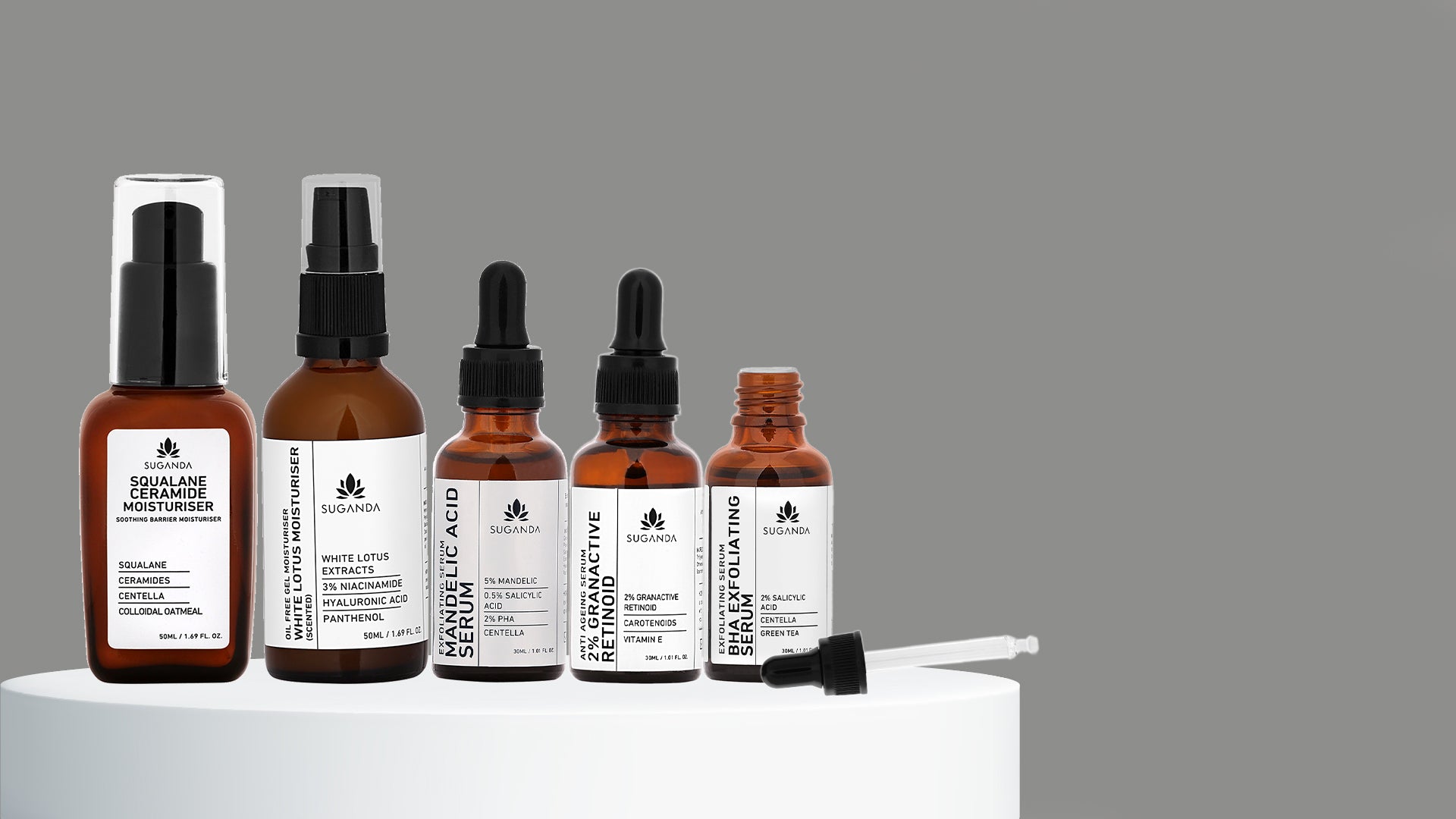In most cases, it is common to have acne-prone skin when the skin type is oily. The struggle of using acne patches to squeeze the pus out hits hard when there is a grand event to attend the next day.
When the sebaceous glands produce excess sebum (natural oil produced by the skin), it clogs the pores, which causes inflammation and thus leads to breakouts. Usually, overproduction of sebum is due to hormonal changes during pregnancy, puberty, menopause, or the menstrual cycle.
What are some simple measures to treat acne-prone skin?
- Wash your skin with gentle cleansers twice a day (red signal for harsh detergent ingredients). Remember that frequent washing could lead to excess sebum production as the skin dries up.
- Don't pick or pop your acne.
- If necessary, use safe extraction methods with a qualified dermatologist.
- Examine the ingredients in your hair care products; some shampoos contain certain ingredients that lead to dandruff and thus cause acne on the forehead
- Keep your skin hydrated by drinking at least 2-3 litres per day.
It is essential to follow these tips because our skin needs some external assistance to nourish itself. For oily skin, one must use non-comedogenic products. Although a skincare product may claim to be non-comedogenic or oil-free, it may contain strong fragrances. Say a big no to fragrances, as they irritate sensitive skin and can cause more pimples.
Hence, it is essential to use products that help acne skin and are free from fragrances and ingredients that clog pores.
Here are the top 6 products that help control shine for oily skin and work great for combination skin during the summer.
Cerave's Resurfacing Retinol Serum:
CeraVe Resurfacing Retinol Serum helps smooth your skin's surface by lowering the impression of post-acne marks, shrinking the pores, and enhancing the surface of your skin. It includes retinol encapsulated to help flare up your skin and liquorice root extract to help brighten the skin tone and texture. Furthermore, it contains three vital ceramides that work together to lock in moisture. Niacinamide helps restore your skin's protective layer
Effaclar Adapalene Gel 0.1% Topical Retinoid For Acne:
It helps reduce blackheads, whiteheads, acne imperfections, and pimples.
Adapalene gel 0.1 percent aids in the prevention of new breakouts of acne.
Acne treatment with a prescription-strength topical retinoid
Acne gel is non-greasy and quickly softens into the skin.
We advise you to have vitamin-rich fruits that could help support you internally, along with some of the best products for acne-prone skin. Also, be gentle and patient with your skin as you try and explore new products.
These are some of the other products that are good for your acne-prone skin.
Mandelic acid serum: Mandelic acid is an Alpha Hydroxy Acid (AHA) that exfoliates the skin, clearing the pores of dust, microbes, and dead skin, but without inciting the inflammation that other AHAs do. Furthermore, Mandelic Acid Serum effectively lightens fine lines and wrinkles and brightens skin over time. Since mandelic acid is a large molecule, it effectively penetrates the skin layers, enabling a much more even and pleasant treatment for dry and sensitive skin.
BHA Exfoliating Serum:
The beta hydroxy acids stimulate cell renewal and moisturise the skin. It also permeates the pores, resulting in acne reduction. BHA Exfoliating Serum is ideal for oily skin as its anti-inflammatory and anti-bacterial properties can soothe acne-prone skin without causing any tingling.
White Lotus Moisturizer:
This ultra-light moisturiser soothes enraged skin, helps regulate inflammation, and facilitates the lowering of skin pigmentation caused by stress and sun damage.
It quickly gets absorbed into the skin, leaving no product patches. The White Lotus Moisturiser best suits oily skin as it is entirely free of fragrance-free oils.
Squalane Ceramide Moisturizer:
Ceramides are vital for your skin. They assist in forming a protective skin layer that restrains moisture loss. When used topically, squalane—a fatty molecule derived from olives—helps neutralise skin damage caused by environmental pollutants. This moisturiser not only hydrates your skin but also helps lessen the redness. Use Squalane Ceramide Moisturiser twice a day to help cope with dry and sensitive skin.
After a hectic day at work, we might be too tired to take care of our skin, but removing make-up before going to bed cleans up clogs to a large extent. Also, using a well-formulated face mask helps moisturise skin.
References:
https://www.ncbi.nlm.nih.gov/pmc/articles/PMC8510514/







 +91 9347578980
+91 9347578980